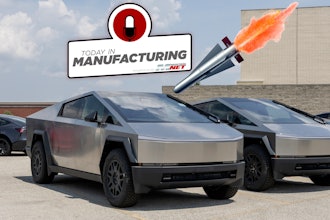Hyundai recently announced a recall of 82,000 vehicles which, in the world of auto recalls, is pretty small potatoes. Consider initiatives by rivals -- GM’s fourth-quarter and full-year results took a $1.1 billion hit from a recall involving seven million vehicles due to dangerous air bags.
And yet, experts are saying Hyundai’s new recall will cost the automaker much more on a per-vehicle basis: one of the highest in history, in fact. And the big factor behind this expense is that this particular recall relates to certain electric models.
There have been 15 reports of battery fires, many which took place when Hyundai electric vehicles were shut off and empty. No injuries have been reported as of now, but a Hyundai study determined that the LG-produced batteries were defective and could short circuit. Thus, Hyundai has determined they must replace the entire battery in each of the recalled vehicles, which will amount to an estimated $900 million in costs.
This equals about $11,000 in costs per vehicle involved in this recall, a unit cost CNN Business calls “astronomically high.” Compare this to GM’s airbag recall which, while massive, priced out at around $157 per vehicle recalled.
Hyundai said it is in discussions with LG as to whether they should shoulder some or all of the cost burden, blaming the problem on a misaligned battery cell. Unfortunately for Hyundai, LG does not appear to agree, saying that it would cooperate with the ongoing investigation related to the fires, but that the fire was not recreated in the lab test. Rather, says LG, “the issue was an early mass production problem in Hyundai Motors dedicated line."
Wherever the blame is placed, in the end, this is another warning for both automakers and their suppliers that electric vehicles could carry higher recall and repair costs, especially as batteries continue to bear such a high line item cost within each overall vehicle.
That said, CNN Business says that the fewer parts on EVs could actually mean recalls overall become less common. As battery costs go down, this will also improve the outlook for these cost centers. But in the near term, if battery fires continue to require full battery replacements, there will be massive costs to bear for the industry.






















